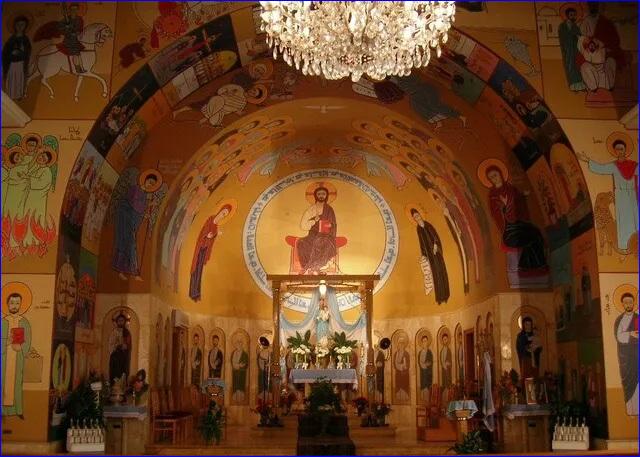


 Preacher lad/Wikimedia Common)
Preacher lad/Wikimedia Common)
Related: Timeline of ISIS in Iraq
Related: Attacks on Assyrians in Syria By ISIS and Other Muslim Groups
The past of Syria's new leader, a former head of the Syrian branch of Al-Qaeda, has raised significant concerns both domestically and internationally about the future of minorities, particularly Christians. This unease is reflected in the recent visit by French Foreign Minister Jean-Noël Barrot to Damascus Christians on January 3. However, al-Sharaa sought to project an image of openness. The attendees described the meeting's tone as "positive."
'A year of peace'
"All or nearly all the bishops present had the opportunity to speak, sharing their concerns and the fears of the Syrian people living in poverty," said Syriac Archbishop Jacques Mourad of Homs.
For his part, the new Syrian leader emphasized the importance of collaboration among all segments of society to support the government in rebuilding the state. According to Archbishop Mourad, al-Sharaa notably avoided using the term "minority." "He said that Christians and other groups are part of the Syrian people," the archbishop added. "He is aware that we Christians are foundational to this country."
Such a meeting was described as "an event unimaginable in Syria's history just three weeks ago," according to Cardinal Mario Zenari, Apostolic Nuncio to Syria, speaking to Vatican News. "I have heard some testimonies, and the bishops and priests who attended left with a glimmer of hope for Syria's future. Ahmed al-Joulani (the new leader's wartime alias, Ed.) promised this would be an inclusive Syria for all. He wished everyone a Merry Christmas and a year of peace."
In Syria, the transition following 50 years of Assad family rule remains uncertain, said Archbishop Mourad. Surprised by how quickly they ousted the previous regime, the new leaders "are still unprepared and uncomfortable" governing an entire nation. "But they are managing the country as if they plan to stay for the long term," he noted, pointing to efforts to print new currency, draft a new constitution, and revise school curricula.
Concerns over new constitution
These developments have raised concerns, especially among Christians. What role will Islam play in the new Syria? What freedoms will religious minorities have? School textbooks have become a focal point of criticism. On January 1, the Ministry of Education announced "modifications" to remove propaganda from the former regime's materials. However, proposals to revise history, philosophy, and science curricula to align more closely with Islam sparked controversy.
Faced with backlash, the government quickly backtracked the following day. "There is something positive in their approach," said Archbishop Mourad. "The authorities are showing flexibility and respect for public opinion."
As a new constitution potentially enshrines Islam's primacy in the country, the Archbishop of Homs believes it is the responsibility of Christians and all citizens to make their voices heard. "This is both a major concern and a significant responsibility for everyone," he explained. "I have no issue with acknowledging Syria as a Muslim country, but the governance system must be based on respect for diversity and equality for all citizens, regardless of their faith. I cannot envision our country being governed by Islamic law but rather by a civil law that upholds human rights."
Since the military group HTC (Hayat Tahrir al-Sham) came to power in Syria, Christian leaders have appeared cautiously optimistic about their future, reassured by the government's initial steps. "I'm more concerned for the Alawites (the minority group from which the Assad family hailed, Ed.)," noted Archbishop Mourad. "They were victims of the previous regime, but now they face acts of revenge and are sometimes killed."

or register to post a comment.